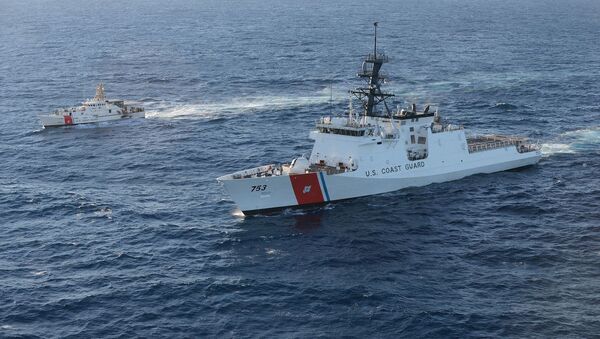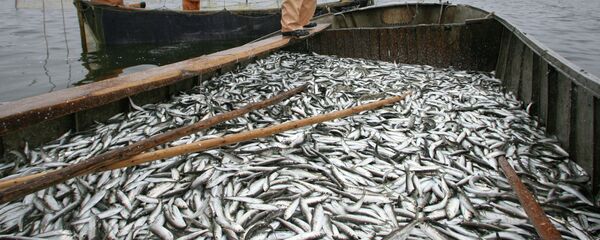"We have a [Arctic] Search and Rescue Agreement that was signed in 2011, and we are now going to exercise that. For instance, the United States Coast Guard is working with the Russia Border Guard, and they will also participate in an exercise with the other six Arctic countries sometime this fall," Papp said on the sidelines of an international Arctic conference in Anchorage, Alaska.
Papp, who was nominated to represent the United States during its chairmanship of the Arctic Council, noted that the two countries continue to cooperate on the Arctic issues well despite the current downturn in the relations.
"The other [joint work under Arctic Council program] is to take a look at how we respond to marine casualties, environmental problems in the Arctic, and we hope to have an exercise there, where all of us will cooperate together," Papp said. "I think the more we work together, the more we understand each other. The more we listen to each other the better off all of us will be."
The Arctic Council is an intergovernmental forum comprised of all eight Arctic nations and 11 observer nations with interests in the region.
US Looks Forward to Continue Arctic Cooperation With Russia
The United States seeks to continue cooperation with Russia on Arctic issues, Admiral Robert Papp told Sputnik following talks with Russia's Ambassador to Washington Sergei Kislyak and senior Arctic official Vladimir Barbin.
"I spoke with both of them [Kislyak and Barbin], telling them that I look forward to our continued cooperation together," Papp said.
He noted that he has worked with the Russian ambassador on a number of issues, and they have "a good working relationship."
"I also spoke with Vladimir Barbin, Russia's senior Arctic official. Mr. Barbin is a very professional diligent worker who has impressed me with his level of detail and his review of our Arctic Chairmanship program," Papp said.
Some 20 countries and hundreds of policy makers, diplomats and scientists took part in the Global Leadership in the Arctic: Cooperation, Innovation, Engagement and Resilience (GLACIER) conference in Anchorage, Alaska on August 30-31.
The participants discussed climate change, adaptation planning, strengthening coordination in Arctic affairs, and other urgent issues the Arctic faces today.


